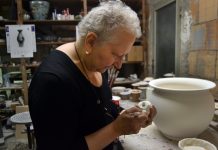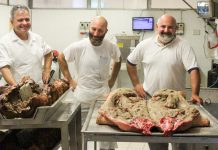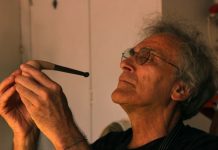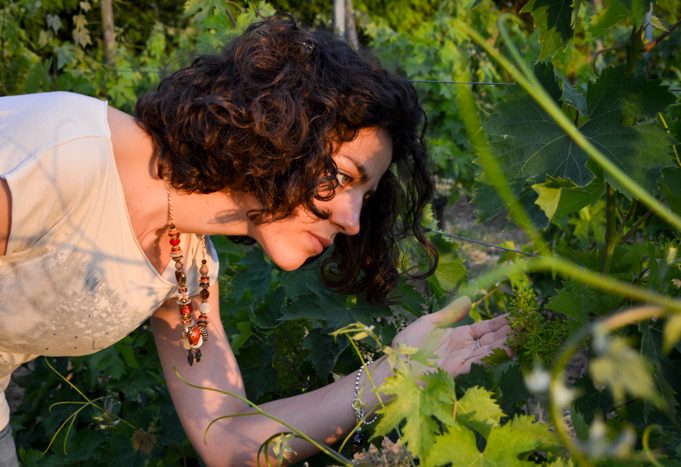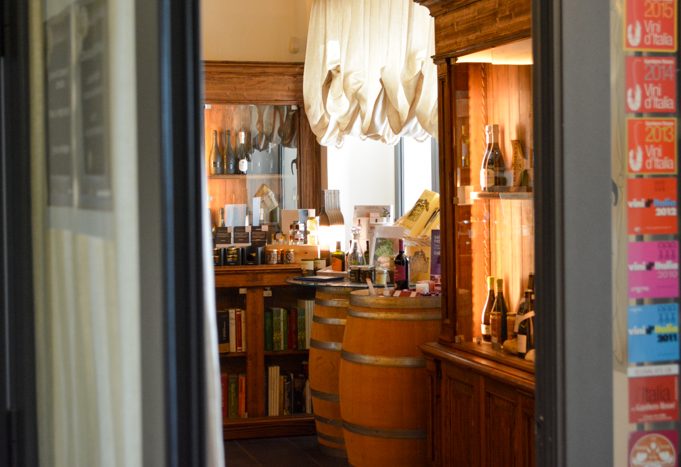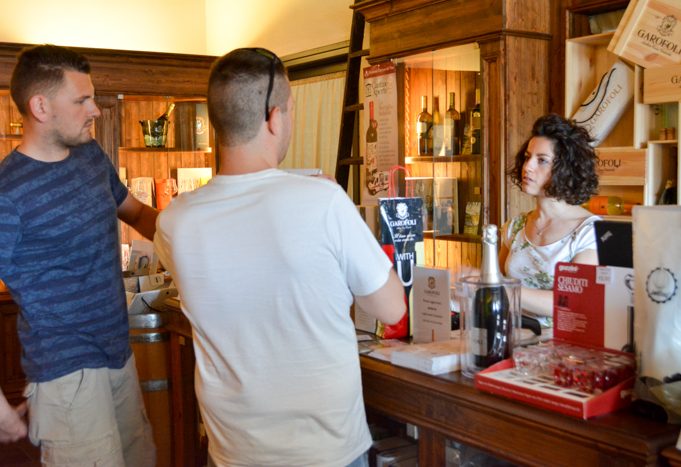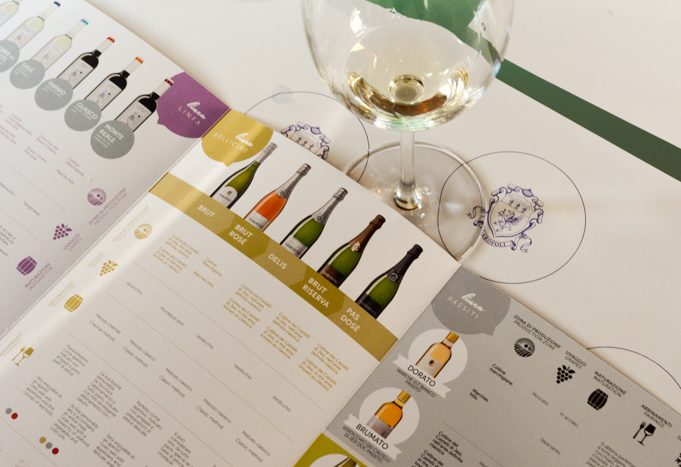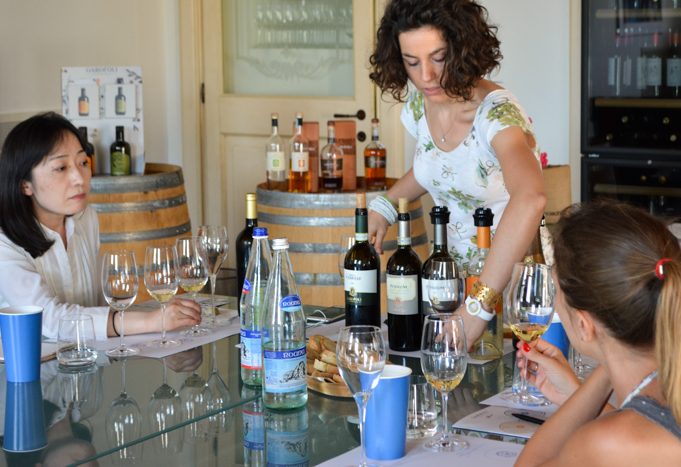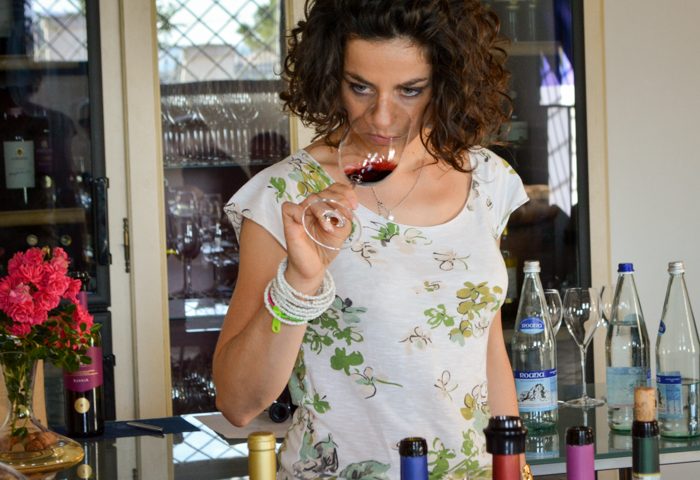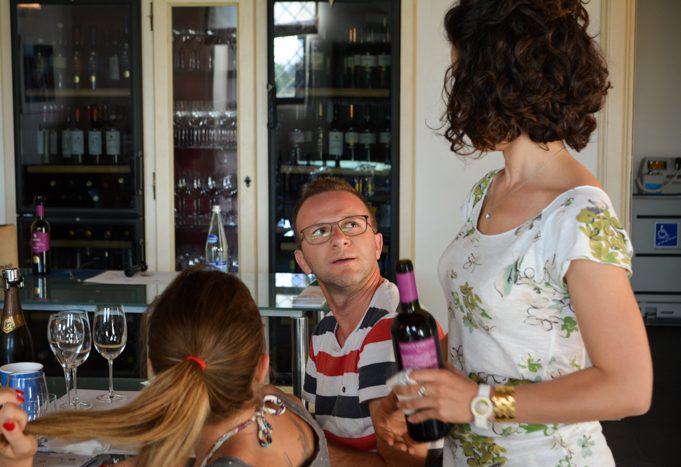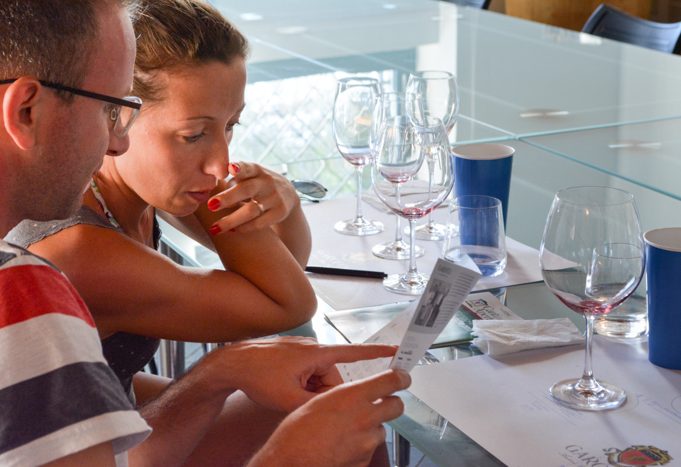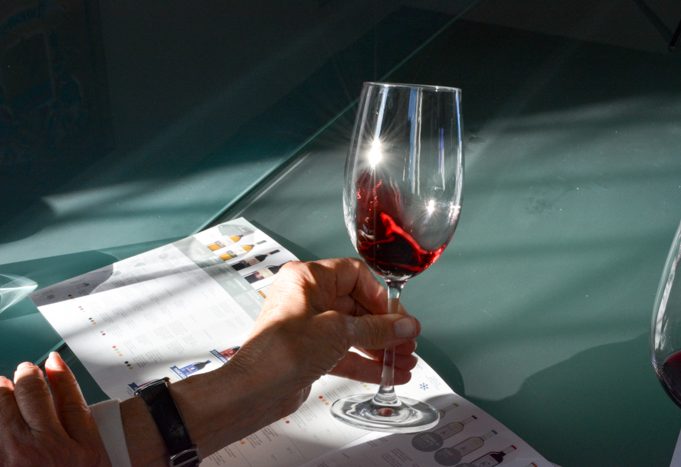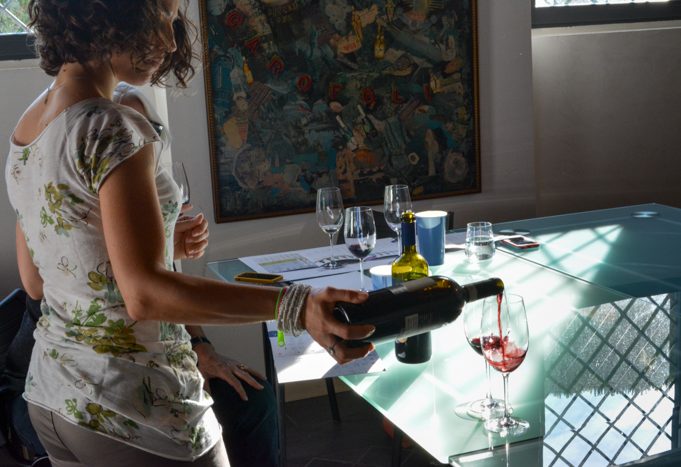Swirl, Smell, Sip! How one young woman is making her mark in the Italian wine world.
LORETO, Italy — Swirling the sparkling glass of wine ever so delicately, Martina Brescini treats this classic Italian beverage as if it were her child. Breathing in the strong aroma, Brescini’s face glows as she begins to explain the composition of the wine in detail.

This is just another workday for the 29-year-old sommelier, a certified wine expert — a wine steward.
Despite being surrounded by wine as a child, Brescini, the daughter of a dressmaker and a truck driver, didn’t discover her passion for the wine industry until more recently.
“Growing up, my parents were not into wine,” Brescini recalls. “My grandfather produced wine, as all the older people of the village where I grew up used to do. I remember harvesting when I was I child. It was a big party for the family. However, this is quite normal in Italy’s past.”
Brescini was 22 years old when, on a whim, she took a job at Terracruda, near her hometown of Mondavio, Italy. The small family-run winery needed some extra help at the time.
The owner’s son scanned a list of 2011 high school graduates in the area with knowledge of economics and experience with the English language. These subjects happened to be Brescini’s choice of study in high school, and she planned on studying them at the University of Urbino.
It was a perfect fit.
“I fell in love with this sector instantly. I discovered wine,” said Brescini. “It wasn’t me that was looking for the wine, and I wasn’t even aware that I liked wine. It was like a natural process.”
Wine is not just wine. Some people forget that wine is culture. Wine is people. Wine is places.
At Terracruda, Brescini established a strong understanding of the composition of wine, the winemaking process, and the business side of the industry. She decided to pursue becoming a sommelier because she thought the title and skills would be needed to advance in the industry.
The process of becoming a sommelier is different in every region of the world. Brescini went through the Italian Sommelier Association, which required her to complete three years of courses and pass an exam in order to earn the title.
“Many European countries have their own Sommelier Associations that run their own courses,” said Ronan Sayburn, chief operations officer at the Court of Master Sommeliers. “They would run wine courses focused on wines from their respective countries because many sommeliers working in wine-producing regions only need to know about wines from home.”
A French sommelier working in Bordeaux, for instance, will only work with wines from Bordeaux because most tourists traveling there want to drink local wines, explained Sayburn.
The exam is rigorous. To pass it, an aspiring sommelier must know more than just the difference between a Pinot Noir and Pinot Grigio. It requires extensive knowledge, from exactly where the grapes were grown to the slight undertones of flavors that arise during cultivation. You must have keen senses and an excellent memory.
Brescini does not boast about her talents as a sommelier. She takes her job very seriously and believes that there’s always room for improvement.
“Just because you have taken the sommelier courses and have the badge, you do not understand everything about wine in just three years of courses,” said Brescini. “You need experience, you need to know people, producers, taste a lot of wine, and most importantly, be humble.”
She brings that humility to her enotourism career at Garofoli Winery, located in the Marche region of Italy. Enotourism, or wine tourism, is a growing industry in which visitors learn about the complex process of making wine. They are also able to meet the producers of the wine. Brescini uses her expertise in her role as a wine “tour guide” at Garofoli.

“It is quite special for a sommelier to end up in enotourism,” said Marcella Newhouse, an Italian wine blogger. “They are taking on an important job because they are not just telling a consumer what kinds of wine they should be drinking, like a typical sommelier in a restaurant, they are teaching the consumer and getting the public more excited about the art of wine.”
Brescini takes pride in sharing her passion for wine with others.
“My job is important because I am the person between the customer and the producer and what they think about the winery.”
As for her future aspirations, Brescini is considering a career as a consultant for wineries interested in developing enotourism. In the meantime, she wastes no time improving her skills every day. She exercises her nose and mouth by smelling almost everything she can and participating in events with other sommeliers, tasting wine while sharing thoughts and ideas.
“When I taste, I usually take notes and try to make pictures in my head because we tend to forget smells and flavors very quickly. I take it seriously.”
Though Brescini’s knowledge of wine is constantly expanding, her philosophy remains the same.
“Wine is not just wine. Some people forget that wine is culture. Wine is people. Wine is places. I always say that wine makes the soul closer between two people because around a good glass of wine you speak of yourself, you speak of life.”






